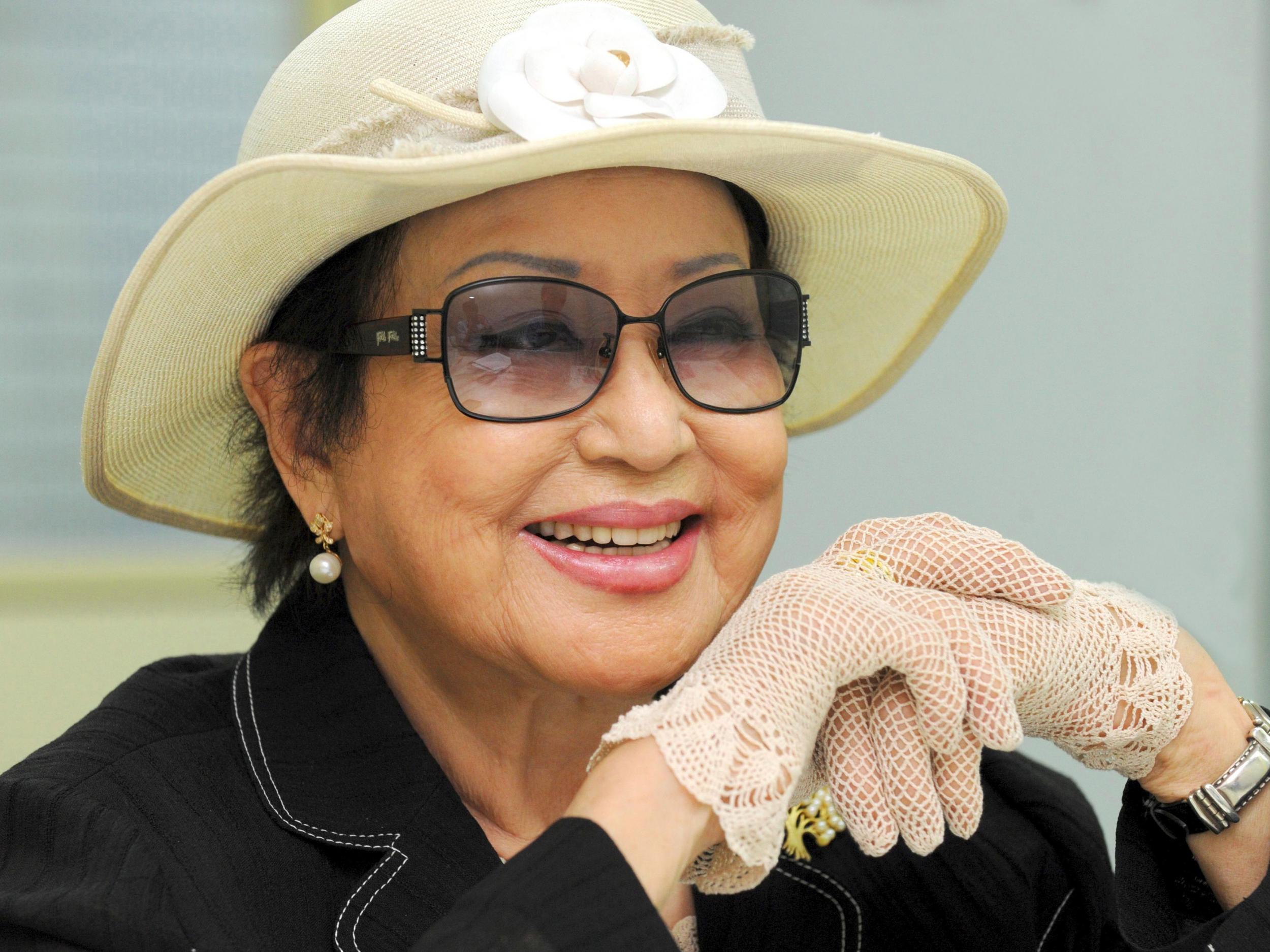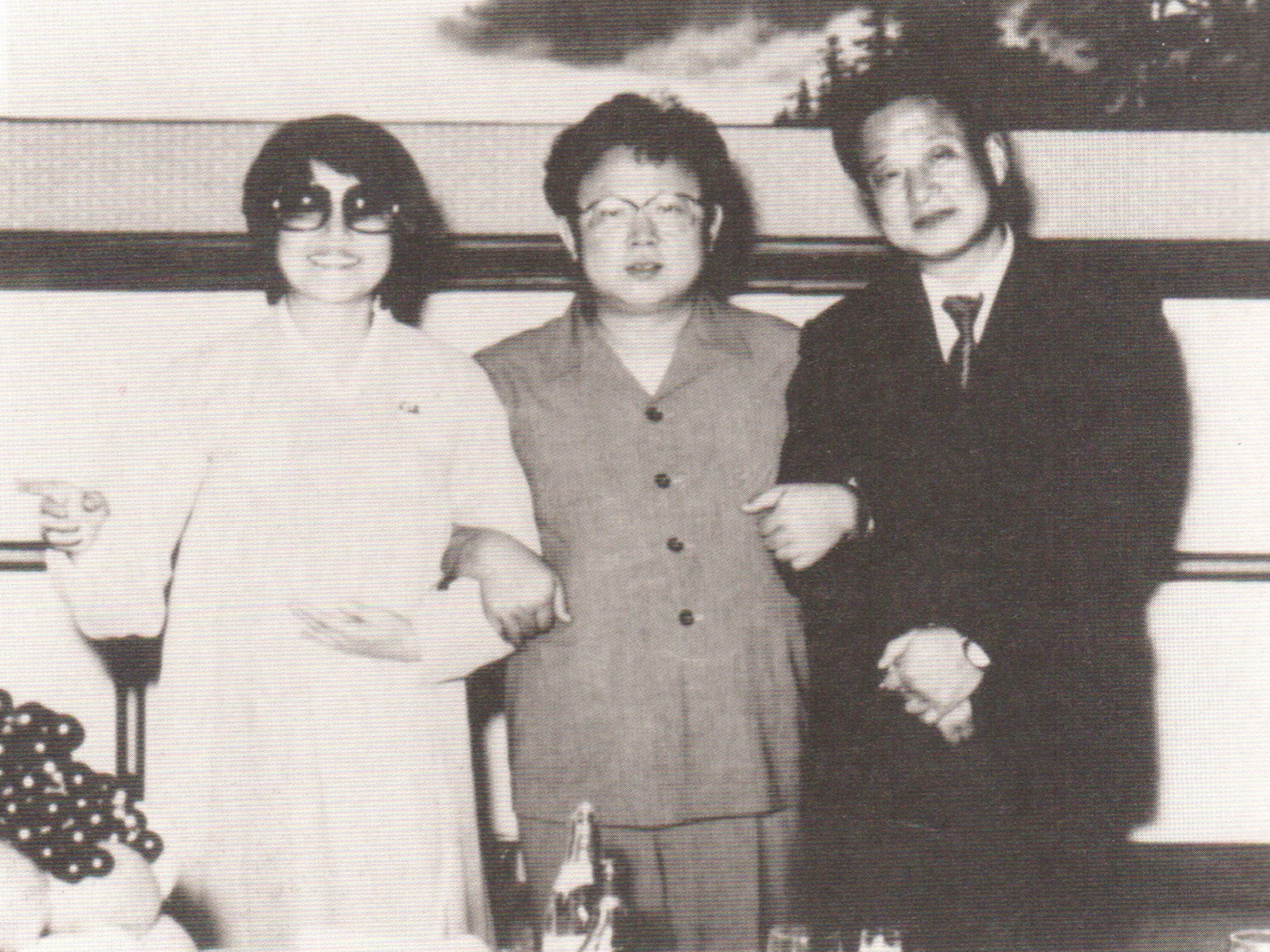Remembering Choi Eun-hee, the South Korean film actor once abducted by Pyongyang
The star was held hostage for eight years in North Korea to make films for her most unlikely fan, Kim Jong-il

On 16 May 1962, the actress Choi Eun-hee took to a stage in Seoul to receive a film award from the hands of General Park Chung-hee, who had become South Korea’s leader in a military coup a year earlier. With a wry grin, she dropped to one knee before Park. He laughed, recognising the cheek in her exaggerated display of deference.
Choi, who lived her life in the shadow of despots, was well acquainted with domineering men. The extraordinary film career she shared with her husband and frequent director Shin Sang-ok was at once championed and complicated by two dictators, who admired her talent yet sought to harness her immense popularity for their own political gain.
After years of starring in popular films in South Korea under Park’s watchful eye, she said that she was kidnapped by neighbouring foe North Korea, to become an agent of propaganda in Kim Jong-il’s nascent film industry. That incredible story, while harrowing, made her one of only few artists to reach stardom in both Koreas since the peninsula’s division in 1945. In later life her account of Kim Jong-il provided the outside world with rare insight into the North Korean regime.
Choi Kyung-soon was born in 1926 in the southern Korean city of Gwangju. To pursue acting, away from a disapproving father, she left home at 17 and dropped her given name for Eun-hee.
After a chance encounter with an actress she liked, Choi started working in a theatre company’s costume department. Soon she took to the stage and in 1947 debuted on screen. Not long after that she married the cameraman Kim Hak-sung, who was 20 years her elder. She suffered much from that union, recounting later that Kim would often beat her.
When the Korean War broke out in 1950, she was forced to entertain first the northern troops, who had captured her, then the southern ones, who rescued her only to treat her with contempt. One South Korean military police officer raped her, after accusing her of treason. Commenting in later life on the unity of mistreatment she received from both sides, she said: “I believe [it] shows the irony of the division of South and North Korea. I don’t think such a war should ever be repeated.”
After the war Choi led a life of outward success as an actress but of inward desperation.
It was her encounter with Shin Sang-ok that would give her cause for hope, at least for a time. As the story goes, Shin, who dreamed of becoming a director and of casting Choi, went to see her on stage. She collapsed from exhaustion halfway through her performance; he rushed to tend to her. That was the beginning of their artistic collaboration, and of their romance.
Gossip of the affair quickly spread but, standing firm in her belief that she could have a better life with Shin, Choi challenged the conservatism of Korean society and sued, successfully, for a divorce.
“Please remember today,” Shin told her on the day the divorce was pronounced, after they had run from preying journalists – “7 March 1954. Let today be our wedding day.” Choi had never been happier.
Choi’s name gave Shin the cachet he needed to launch his directing career; Shin’s enthusiasm for film renewed Choi’s own. Together they would dominate Korean cinema, and column inches, for three decades. In his blockbuster melodramas, thrillers and historical epics, Shin introduced South Korean audiences to Technicolor, CinemaScope and fully synchronised sound film. Choi earned higher fees than any Korean actress before her, and explored characters as varied as a war widow, a chaste student, a queen and a promiscuous barmaid.
Challenging censors, Shin’s work increasingly explored erotic promiscuity. As a result, Choi, who had met Marilyn Monroe on her 1954 visit to entertain US troops, became her country’s own sex symbol, with all of the admiration and opprobrium that brought. South Korea was then torn between its traditional values and the more liberal cultural influences flooding in from its American ally.
Politically, Shin and Choi toed the line, in one film, for example, praising General Park’s agricultural reforms. On matters of virtue, however, Park’s fondness for their work allowed them greater creative leeway than other filmmakers enjoyed.
Outside of work, Choi and Shin found joy in the adoption of two children.
The couple’s fruitful relationship, both publicly and in private, came to an abrupt end in 1974, when Shin’s affair with a younger actress, Oh Su-mi, and the son he fathered with her, were revealed. (Oh would bear another child from him.)
A devastated Choi divorced Shin. South Korean authorities turned against Shin’s now overly subversive work, both their careers dwindled, and Choi was feared to want to kill herself.

In 1977 an offer of work from Hong Kong lifted Choi’s spirits. But, she later said, the invitation turned out to be a ruse by North Korean agents to kidnap her on behalf of Kim Jong-il, the son of the then dictator Kim Il-sung.
By her own account, she spent days of anguish at sea, not knowing why she had been taken away. Welcoming her in person at the port where she landed, Kim Jong-Il allegedly said, with a grin: “Thank you for coming, Madame Choi.”
Kim had long been obsessed with cinema both as an art form and as a means of mass propaganda. And he had long admired Choi and Shin, the second of whom he also soon managed to have brought to North Korea. With their combined talent, Kim thought, North Korean cinema would gain international acclaim, and spread the country’s ideology. “I acknowledge that we lag behind in filmmaking techniques,” Kim said in a meeting secretly taped by Choi. “We have to know that we are lagging behind and make efforts to raise a new generation of filmmakers.”
Thus began one of the strangest collaborations in film history, by which a dictator-in-waiting coerced two abducted celebrities into producing his country’s most accomplished works of popular art.
Facing this ordeal together, Choi and Shin quickly rekindled their love for one another. Though they often despaired, their sequestration had perks, too. First, Kim Jong-il injected new life into their then dormant careers. Second, he indulged their every request, agreeing to the most extravagant props and shooting locations abroad.
Though propagandistic in intent, some of the films that came out of this collaboration – most famously the Godzilla-inspired Pulgasari – are now considered classics of Korean cinema.
Liberation for Choi and Shin came in 1986, on a visit to Vienna, when they managed to briefly elude their minders and run to the American embassy, where they were granted asylum. Kim had lost his stars.
Choi and Shin flew to the United States, where they gave a memorable press conference about their abduction, and were questioned by the CIA. Choi’s account of a violent and bacchanalian regime heavily influenced Western perceptions of North Korea in the years that followed. But little attention was afforded either to the hardship she had endured in South Korea, or to her impressive decade-long acting career.
Choi and Shin were remarried, and became US citizens. Now in her sixties, and with only a limited grasp of English, Choi failed to make a name for herself in Hollywood. But her memoirs, published in Korean, sold well. Paul Fischer’s A Kim Jong-il Production provides the fullest English-language account of her life.
The couple returned to South Korea in 1999. But they did not receive the welcome they had hoped for. Some believed they may have willingly defected to North Korea; others, who accepted their tale of abduction, sought to use them as political pawns to excoriate the North.
Her star slowly faded and, saddled with debt, she lived her final years with modest means.
Choi is survived by her two adopted children and by Shin’s two children with Oh, whom she took in as her own during her time in California. Shin predeceased her in 2006.
Though her association with Kim Jong-il dominates accounts of Choi’s life, her legacy is far richer than that, straddling as it does North and South, tradition and modernity, great anguish and unprecedented success.
She enjoyed calligraphy and, having converted to Catholicism in her later years, prayed often. Her favourite song in old age was Kim Do-hyang’s “I’ve Lived Like a Fool”, which somehow expressed the tangled life she had led.
Known for her compassion as much as her resolve, Choi told a recent interviewer she believed that, to be a great actor, one must be a good person. “That is because an actor needs to be able to sympathise with the feelings of others in order to act well,” she said. “I believe a kind heart, looks, speech, skills and the ability to write are the five qualifications of a good actor.
“Of course, a kind heart is the most important factor of the five.”
Choi Eun-hee, actress, born 20 November 1926, died 16 April 2018
Join our commenting forum
Join thought-provoking conversations, follow other Independent readers and see their replies
Comments
Bookmark popover
Removed from bookmarks